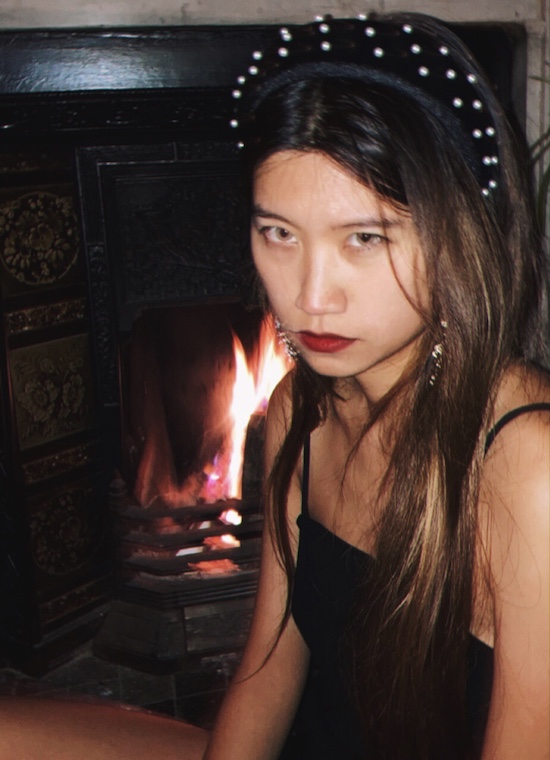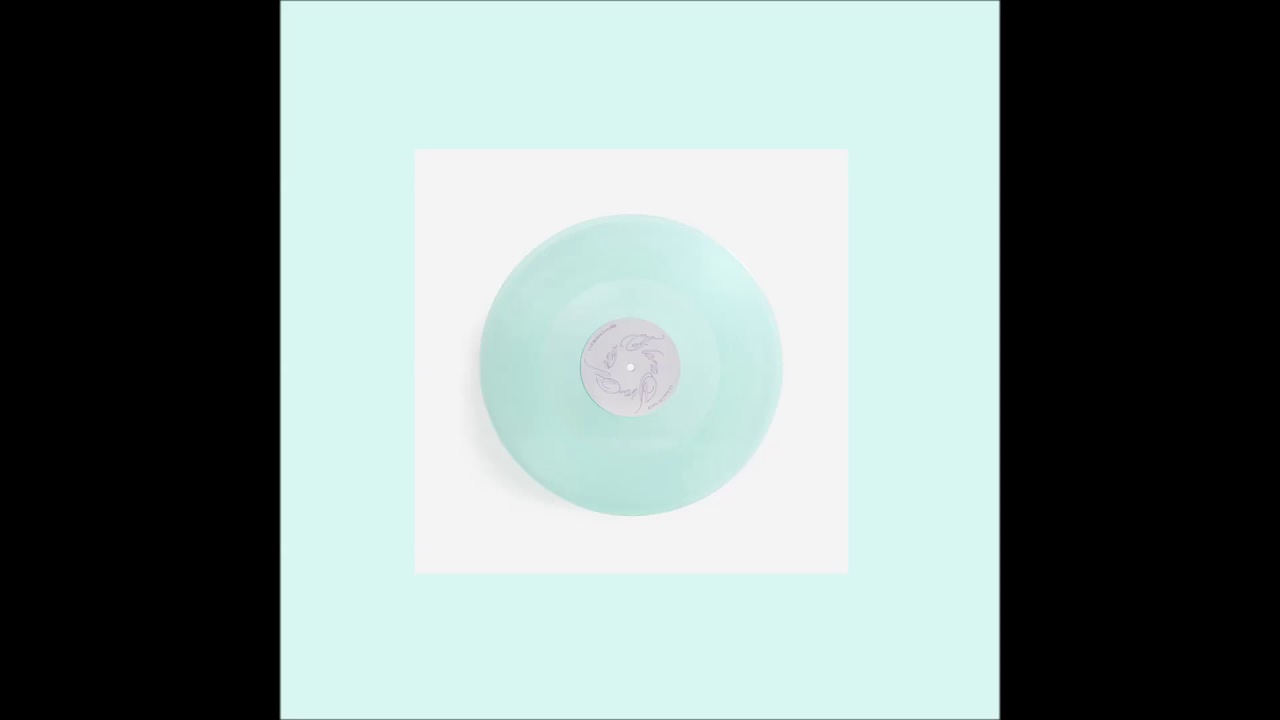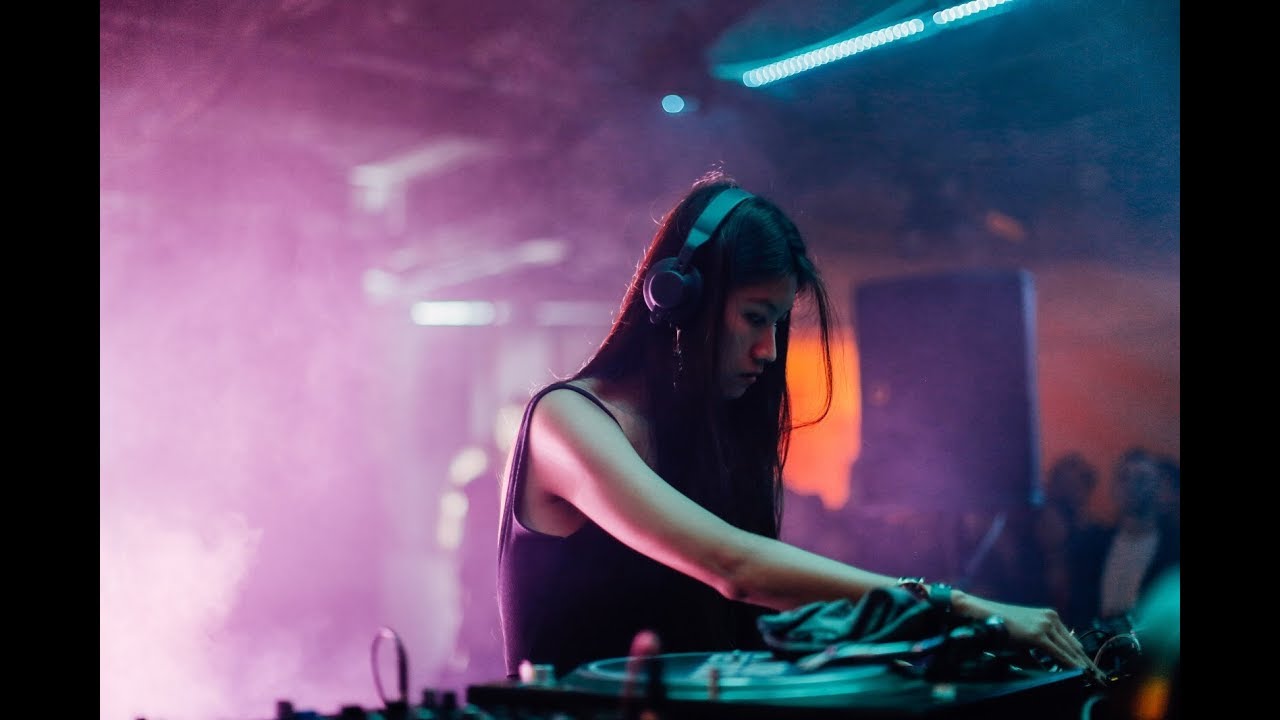Flora Yin-Wong plays Semibreve Festival on October 30
"Ever since I was young I’ve felt there was another layer of things to the world, and I guess we’re all just trying to describe what that is." I’m speaking to sound artist and writer Flora Yin-Wong at her artist residency at Mahler & LeWitt Studios in Spoleto, Italy, where over the course of the month she’ll be indulging these interests.
"I’m thinking about how to present the work I’m doing here, whether it will be a release or creating a sacred space. I’m making loads of paper talismans. In Japanese they’re called ofuda. They’re protective spells, though you can also have evil ones. I’m gonna make some good ones for this space as there’s been loads of earthquakes in the area. The house where I am feels very special. It’s up in the mountains, all foggy in the middle of nowhere. It seems quite magical. There’s a lot of folklore in Spoleto about the saints people pray to who protect them from earthquakes, and I’m going to try the same with these talismans. So it’s like bringing together all the spirits of the world."
She laughs at this last sentence, which points to the sense I get throughout our conversation that while she takes her work seriously, she does so out of interest rather than adhering to any strict dogma or superstitions.
Coming after last year’s astonishing debut album, Holy Palm, Yin-Wong’s new book, Liturgy, opens with the words "This book is divided into eight chapters. (The number four is omitted for its inauspiciousness.)" The number being considered so in many Eastern cultures because the word for ‘four’ also sounds like the word for ‘death’. When I ask her how seriously she takes this, Flora responds, "I don’t take it seriously. Four has always been my favourite number. I don’t know why. Though that makes me sound more spooky."
The eight chapters of the book are Rituals & Fire, Omens, Hexagrams/Oracles, Curses, Gods & Creatures, Places: Doors to Hell/Ghost Cities, Paradoxes, Sound Phenomena, and Reality. Yin-Wong explores these topics through anecdotes, short definitions, lines of poetry, and snippets of observation from her journeys around the world. Sketches, rather than full portraits, highlighting intriguing areas – the hexagrams of the I Ching, a 69-metre-across natural gas fire that’s been burning in the Karakum Desert for the past 47 years and other strange locales, many instances of paranormal activity – that the reader may very well wish to explore further. "It’s not a travel journal though, more just things of interest."
In fact Yin-Wong’s life seems to be like this. After leaving university she landed her dream job, working as an editor at Dazed, a magazine she’d been reading since she was 13. After four years, Flora then decided to move to the other side of the world without any real plan and ended up working as the music director for the W Hotel in Hong Kong. A corporate job that was both wild and stressful. "There were a couple times I had to play as well and had to go through this infinity pool to the back where there were these huge lasers, firebreathers, pole dancers, and people on stilts or dressed as mermaids." Leaving this madness to work for her favourite record label, PAN, in Berlin. "I ended up doing music which is what I’ve always wanted to do, but I never thought I could because I’ve never been properly trained. I just started putting more and more work into it and now I’m actually able to play shows and release music."
"My dad once told me that I was going to be lucky, and I think because he told me that, I’ve always believed it." Flora’s father had, as is normal practice in the East, consulted a fortune teller when she was born, in the year of the dragon, long associated with magic and good fortune. "I’ve been on a really crazy path where I’ve been able to live out all my dreams. Life has been super weird and childhood was quite traumatic, I had to deal with a lot of mental illness around me. I struggled a lot, but I always kept thinking "but I’m supposed to be lucky, so I’m gonna be lucky." I’m super grateful for everything. Despite all the madness that I’ve gone through, or whatever madness the world is going through, all you really have are personal goals to keep going, and I feel I’ve been really lucky to be able to achieve those.’
How did the book come about?
Flora Yin-Wong: I was always a writer before I was doing music production and I’ve always collected loads of short, abstract pieces and poems. I took some time out from another curatorial job I had to go to Japan for three months. I wanted a change of scenery and to explore Eastern mythologies more. I started writing the book simultaneously alongside the album, so the themes interlink with each other. The samples and field recordings were taken from all over – Canada, South America, Asia – and the book touches on tales I’d come across while I was Hong Kong, Japan, or other weird places I went to on a whim. It was a process of piecing things together once I got back. I was touring a bit while I was in Japan too. I went to Shanghai and Beijing. It was a super interesting learning experience for me, as diasporic heritage. Growing up in London I felt very disconnected from being Chinese, my parents didn’t really teach me a lot about Chinese culture. But snippets of things trickled through, like Taoist faith and spirituality. Which is more cultural rather than religious in my family. A lot of that stuff is embedded and I felt I had been learning it second-hand, through a Western lens.
I wanted to ask you about writing about snakes in the book.
FYW: Snakes are my mother’s only phobia. She’s a very strong woman, terrifying. And she’s not afraid of anything but snakes. Which I find super interesting. My mum’s a Cantonese opera singer, and there’s a famous opera based on an old tale about a green snake and a white snake that I included in the book.
I think snakes are really beautiful. In Japan I went to a snake café and you can put them on you and touch different ones. Their skin is insane, it feels so unlike anything else. And they’re so unpredictable, you don’t know what they’re going to do next.
Snakes are referenced in mythology worldwide, and often seen as a negative force. But I think that’s just a human way of seeing things. I was also going to include a section on the most poisonous flowers and plants. How these things are really small but really powerful. I’ve always been interested in natural things that might have been around since before humans, that show us that perhaps everything doesn’t centre around us.
Why did you choose the title Liturgy?
FYW: Religion and faith have always interested me. Even though I was raised Christian, going to a Christian school, my parents were atheist, apart from having these Taoist traditions, and my sister was a fully practicing Muslim. So religion has always interested me in how it affects different people’s lives. It’s such an all-compelling thing, completely changing people’s lives, and has affected everyone in the world in different ways. In modern times, fewer and fewer people have faith or are religious. But I love spaces that are still deemed sacred, like when you enter a temple or a church. They’re designed to make you feel small, right? But also feel something outside of yourself. When I was a kid I was really interested in reading the Bible because it seemed so mad, really mental. And some of the stories are terrifying. I wouldn’t call myself a spiritual person, I feel I’m very rational and logical. But I don’t see why spirituality has to be at odds with science. People also attempt to explain things through religion, so Liturgy, for me, was like a nice summation of all these different things I’m interested in.
Why did you choose the title Holy Palm for the album?
FYW: I was trying to think of something that felt like it was a powerful symbol. I love double meanings and in the book I talk about mudras and different hand symbols that mean peace and healing, so palm as in hand, and also like a palm tree linking me to my Dad’s Malaysian heritage, a land that feels very far away to me. He grew up in a village outside Kuala Lumpur, that I’ve only been to twice when I was a kid. It felt super crazy to me. They have moths the size of plates, a lot of snakes [laughs], really crazy stuff, that again puts being human into perspective. I love putting words together, the way they sound, the way they look, so Holy Palm just felt right.
Tell me about making the album.
FYW: It took a really long time. I don’t like to waste ideas, so I would just keep going back to things until they were finished, changing and moving and merging things. A lot of the stuff started off being made a really long time ago, and then it just took so long. But it was a moving moment when the different elements did come into place. I was working in two studios at the time, at Tileyard and Red Bull Studios, both in London.
I’ve always loved Modern Love as a label and I thought they might be responsive so I spoke to Shlom who runs it and he ended up not changing a thing. He said, ‘This is your work, let’s put it out.’ It was his idea to include all the field recordings on the C & D sides and make it the double vinyl. I didn’t envision that initially but it made sense because that’s all the sounds that went into it. So yeah, I was really happy with that.
Those field recordings weren’t taken on purpose for the sake of this project. They were just stuff on my phone that I had for years. Because if you’re interested in sound even a little bit, you’re going to be recording random stuff that you hear that’s nice or interesting. And then Somerset House were launching a new gallery and they wanted an audio commission based around the idea of radio, other worlds, and memory. And I thought, ‘Ok, perfect’ because I wanted to put all these things together and I love the idea of switching quite abruptly between these sounds as if you’re switching a radio station and connecting to all these different spaces and locations. They’re all taken from really different places around the world. And some of them were just being in my friend’s car or something really mundane. You can hear a lot of my friends’ voices in there, which is nice and personal.
You were talking about sacred spaces, you’re going to be performing in a chapel at Semibreve Festival?
FYW: Yeah. I like to have a concept before I start, because it’s more fun that way. So this piece is called ‘Sea Of Fertility’ and is based around Yukio Mishima’s tetralogy of the same name. The one where upon completion he killed himself. He was a fascinating, intense man. My piece thematically touches upon threads that he goes through in the books, which are basically about reincarnation and rebirth, where this man is chasing different people whom he believes to be the reincarnation of his childhood friend. And this ultimately destroys him. I also think it’s interesting to look at the nomenclature of the Moon’s lakes – there’s the Sea of Crisis, the Known Sea, the Sea of Forgetfulness. All such intense names, I love it. I’m working on some directional sound for this piece. I’m going to try and map it to where these lakes are on the Moon.
I love the Moon. It’s something that has existed for the entirety of mankind, and people have had so many different concepts as to what it was, what it was doing, its relationship to the Sun, and the deities that live on it. The Chinese Goddess of Mercy, she lives on the Moon. I see it as a place of peace, so it’s fitting to perform this in a chapel.
Flora Yin-Wong’s Liturgy is out now, published by PAN and Primary Information, Holy Palm is out now on Modern Love




